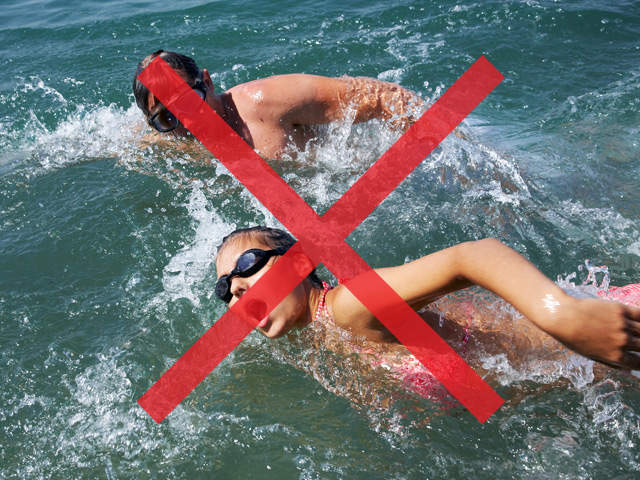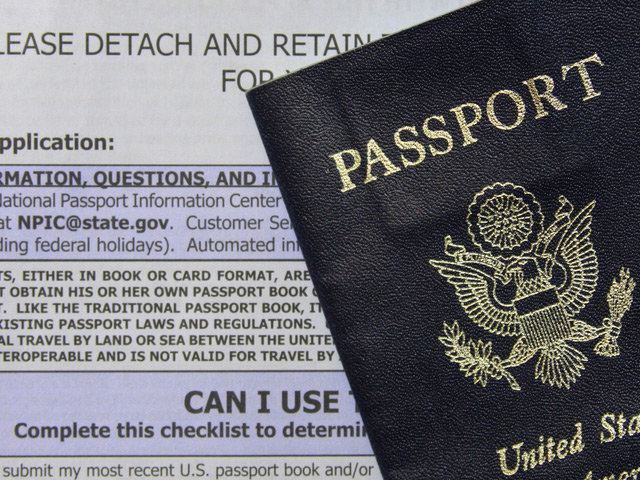Had better, it's time (B2)
Had better, it's time – procvičování:
It's time to hit the beach. You had better slather on sunscreen.
| Je na čase: |
It's time to hit the beach.
|
| Doporučení: |
You had better slather it on.
|


HAD BETTER = silné doporučení, rada nebo varování:




IT'S TIME = je na čase, aby se něco udělalo:




HAD BETTER = doporučení nebo varování
Pokud chceme upozornit na to, že by se něco mělo udělat, aby se předešlo problémům a nepříjemnostem, použijeme HAD BETTER/'D BETTER + infinitiv bez TO:
|
This water is not safe to drink. You had better drink from a bottle. (= It's very advisable to drink from a bottle. If you don't do that you could get sick.)
|
|
You'd better come up with a good excuse for coming late. (= You should come up with a good excuse. If you don't, you'll get in trouble.)
|
|
You had better finish everything today. (= If you don't, I won't be happy about it.)
|
Všimněte si, že i když mluvíme o přítomnosti/budoucnosti, používáme HAD:
|
You had better drink from a bottle.
|
Raději se napijte z láhve. |
Nikoliv: You HAVE better...
Zápor tvoříme pomocí NOT:
|
You had better not ask too many questions. Josh doesn't like that.
|
|
I'd better not leave the door unlocked. Somebody might get in.
|
Ve velmi hovorové angličtině se HAD často vypouští:
|
You better drink from a bottle.
|
|
You better come up with an excuse.
|
|
You better finish today.
|
It might come about that you need a new car. You had better set aside some money.
| Silné doporučení: |
| You had better set aside... |
| You'd better set aside... |
| You better set aside... |


I had better apply for the passport this week. I want to make sure I get it in time for my trip.
|
I have had better apply this week.
|


It's going to be a long race. You'd better pace yourself.
|
You'd better to pace pace yourself.
|


You had better not miss the bus. If you do, you'll have to walk.
|
You hadn't better had better not miss it.
|


SHOULD a HAD BETTER jsou významově podobné (vyjadřují radu, doporučení), ale používáme je v trochu jiných situacích:
- HAD BETTER používáme pouze pro konkrétní situace; při neuposlechnutí nám hrozí problémy/nepříjemnosti
- SHOULD používáme pro konkrétní i obecné situace; při neuposlechnutí nic nezbytně nehrozí
|
It's going to rain. You'd better take an umbrella with you. (= a particular situation; There's a risk of getting wet if you don't listen to the advice.)
|
|
I don't think people should be allowed to smoke in pubs. (= in general)
|
|
You'd better buy that book today. It might be already sold out tomorrow. (= a problem)
|
|
This book is amazing. You should buy it. (= no problem)
|
If you're free this summer, you should spend some time with me in San Francisco.
| Doporučení – nehrozí problémy: |
|
You had better should spend some time with me.
|


There's a lot of congestion on that road today. You'd better take a different route.
| Doporučení – hrozí problémy: |
|
You'd better take a different route, because you might get stuck in traffic.
|


All people should treat others how they want to be treated.
| Mluvíme obecně: |
| All people had better should treat... |


Nepleťte si HAD BETTER ('D BETTER) a WOULD RATHER ('D RATHER):
| Rada, varování | Preference |
|---|---|
|
You had better go out. If you stay at home you'll most likely get bored. (= I advise you to go out.)
|
I don't want to go out. I would rather stay at home. (= I prefer to stay at home.)
|
|
I'd better book the room today. There might be no free rooms tomorrow.
|
I'd rather book the more expensive room because it has a balcony.
|
I'd rather fly. I don't like driving long distances.
| Preference: |
|
I'd better rather fly.
|
| (= I prefer to fly.) |


You'd better slow down, Jack. I think you're speeding.
| Rada, varování: |
|
You'd rather better slow down.
|
| (= I advise you to slow down.) |


IT'S TIME... = je na čase, aby...
Pokud chceme říct, že by se už něco mělo udělat/stát, použijeme IT'S TIME + (FOR SOMEBODY/SOMETHING) + TO infinitiv:
|
It's time to tell the truth.
|
|
It's time for us to tell the truth.
|
|
It's time to go to sleep.
|
|
It's time for Stevie to go to sleep.
|
It's time to finish breakfast and head to school.
| Je načase, aby se udělalo: |
|
It's time to finish breakfast.
|
|
It's time to leave.
|


It's time for me to call a taxi. My flight is in three hours.
|
It's time for me to call a taxi.
|
|
It's time to call a taxi.
|


Použít můžeme také IT'S TIME + SOMEBODY/SOMETHING + minulý čas. Pomocí této vazby často kritizujeme nebo si stěžujeme:
|
I don't want to lie anymore. It's time we told the truth.
|
|
Why is Stevie still up? It's time he went to sleep.
|
Všimněte si, že i když mluvíme o přítomnosti/budoucnosti, sloveso je minulém čase:
|
It's time we told the truth.
|
Je načase, abychom řekli pravdu. |
|
It's time he went to sleep.
|
Je načase, aby šel spát. |
Nikoliv: It's time we TELL...




It's time Terry found a job. She's been looking for one for ages.
|
It's time she found a job.
|
|
It's time for her to find a job.
|


Simon, it's time you stopped being lazy and did the dishes!
| Kritizujeme: |
|
It's time you stop stopped being lazy.
|
|
It's time you do did the dishes.
|


I don't want to pressure you but it's time you paid the rent.
|
It's time you to pay paid it.
|


Kritiku můžeme zesílit přidáním ABOUT/HIGH:
|
It's high time you married Erica. You've been together for over six years. (= You should've done it already.)
|
|
It's about time you had your hair cut. Why haven't you done it yet?
|
It's high time you did something about your snoring.
| Silná kritika: |
|
It's high time you did something about it.
|
|
It's about time you did something about it.
|


Had better, it's time – nejdůležitější body:
- YOU HAD/'D BETTER (NOT) DO...→ silné doporučení; při neuposlechnutí hrozí nepříjemnosti:
You'd better swim back. There are sharks out there.You'd better not swim too far.
- IT'S TIME (FOR SOMEBODY/SOMETHING) TO DO... → je na čase, aby se udělalo:
It's time to swim back.It's time for you to swim back.
- IT'S TIME SOMEBODY/SOMETHING DID... → stěžujeme si, že je už něco na čase:
I've told you twice already! It's time you swam back.
Doporučujeme si procvičit HAD BETTER a IT'S TIME v našich cvičeních.
